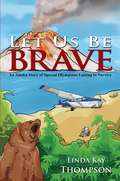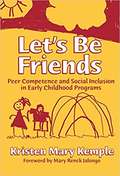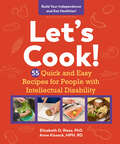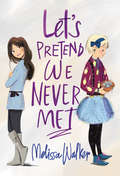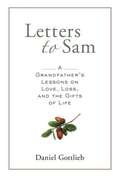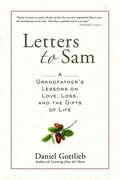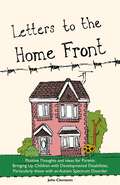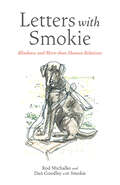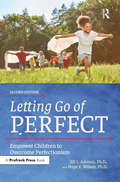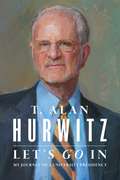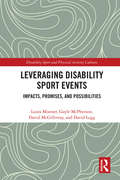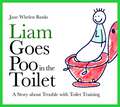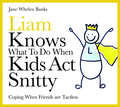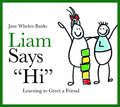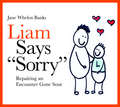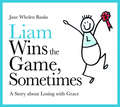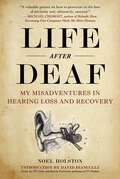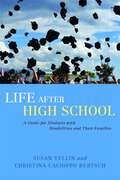- Table View
- List View
Let Us Be Brave: An Alaska Story of Special Olympians Uniting to Survive
by Linda ThompsonA dramatic bush plane crash in coastal Alaska leaves the pilot injured. The passengers, a team of Special Olympic Athletes, must fend for themselves to survive. An Alaska storm first threatens to overwhelm them during the night as they care for their unconscious pilot. Each must confront the challenges of survival in the wilderness, while transcending their limitations. Forced to overcome their habits of dependency and help each other, the group finds courage in the Olympic oath: "Let me win, but if I cannot win, let me be brave in the attempt."
Let's Be Friends: Peer Competence And Social Inclusion In Early Childhood Programs (Early Childhood Education)
by Leslie R. Williams Kristen Mary KempleThis book describes methods of support and intervention teachers can use to create social inclusion in preschool and the primary grades. Combining general early childhood education with special education, this unique volume explains a wide variety of strategies ranging from environmental arrangement, on-the-spot teaching, and cooperative learning, to more intensive, individually-targeted interventions for children experiencing particular challenges and disabilities. “This is a book richly populated with young children, their words, their concerns, and a host of collaborative strategies for promoting peer affirmation. . . . How I wish that all young children would have had the benefit of teachers who read, understood, and implemented the ideas in this book.” —From the Foreword by Mary Renck Jalongo, Editor-in-Chief, Early Childhood Education Journal “Let’s Be Friends addresses critical questions about how early childhood programs can help all young children, including those at-risk, to develop competent social interaction skills . . . an invaluable contribution in its translation of research results to practical interventions.” —Karen E. Diamond, Director, Child Development Laboratory School, Purdue University
Let's Cook! (Revised): 55 Quick And Easy Recipes For People With Intellectual Disability
by Elizabeth D. Riesz Anne KissackPrepare your own healthy meals with success! In Let’s Cook! you’ll learn how to cook simple and nutritious meals—with recipes using all the MyPlate food groups. Gain confidence in the kitchen and build self-worth! Designed by and for adults with intellectual disability, Let’s Cook! promotes and reinforces life skills for independent living. Let’s Cook! can help you: Create healthy meals. Control carbs, calories, and salt. Follow food and kitchen safety. Eat well, today and every day! Inside Let’s Cook! you’ll find: More than 50 healthy “I can cook” recipes in large print are written at an early elementary reading level. An easy-to-follow recipe style sets forth What I Need, What I Use, What I Do. Color photos showcase each recipe. Step-by-step preparations take the guesswork out of cooking. Complete nutrient information is included for each recipe.
Let's Go Shopping: A Grammar Tales Book To Support Grammar And Language Development In Children (Grammar Tales)
by Jessica HabibPete and Jem are very helpful at the supermarket, but end up causing chaos with a tower of food on display. Targeting Subject-Verb-Object sentences and the conjunction ‘and’ for listing, this book provides repeated examples of early developing syntax and morphology which will engage and excite the reader while building pre-literacy skills and make learning fun, as well as exposing children to multiple models of the target grammar form. Perfect for a speech and language therapy session, this book is an ideal starting point for targeting client goals and can also be enjoyed at school or home to reinforce what has been taught in the therapy session.
Let's Pretend We Never Met
by Melissa Walker“I love how this book gets the fragile ecosystem that is middle school. There’s a purity to the voice that feels very real, very Judy Blume. Loved it!”—R. J. Palacio, author of WonderThe Thing About Jellyfish meets The Kind of Friends We Used to Be in this sweet, honest middle grade debut.If it were up to Mattie Markham, there would be a law that said your family wasn’t allowed to move in the middle of the school year. After all, sixth grade is hard enough without wondering if you’ll be able to make new friends or worrying that the kids in Pennsylvania won’t like your North Carolina accent.But when Mattie meets her next-door neighbor and classmate, she begins to think maybe she was silly to fear being the “new girl.” Agnes is like no one Mattie has ever met—she’s curious, hilarious, smart, and makes up the best games. If winter break is anything to go by, the rest of the school year should be a breeze.Only it isn’t, because when vacation ends and school starts, Mattie realizes something: At school Agnes is known as the weird girl who no one likes. All Mattie wants is to fit in (okay, and maybe be a little popular too), but is that worth ending her friendship with Agnes?
Let's Talk About Disabled People
by Pete A. Sanders"Let's talk about" looks at subjects of specific interest to young children and asks and answers the questions they most frequently raise. The series covers issues which affect children's lives or which add to their growing awareness of the world. This book talks about people who are differently abled, and helps children to understand how they feel when they have a temporary disability such as a broken arm, might be how a person who is permanently disabled feels.
Letters to Sam: A Grandfather's Lessons on Love, Loss, and the Gifts of Life
by Daniel GottliebDr. Gottlieb is a nationally known psychologist. He has a private practice, a call-in radio show in Philadelphia's NPR affiliate, writes a regular column for the Philadelphia Inquirer, and authored several books. At age 33, he was in a car accident and became quadriplegic. He's been in a wheelchair since then. After healing, he returned to his profession. When his grandson was born, he began writing short letters to Sam, a method of passing on his wisdom. At about 14 months, Sam was diagnosed with Pervasive Developmental Disorder, the Autistic Spectrum Disorder. Grandpa's letters became even more important as Sam grows to age 4, when the book ends. The themes of the letters speak to everyone, disability is only one aspect of their lives. There are many gems of wisdom in here, much to ponder and absorb. It resonates with life lessons worth knowing and universal truths.
Letters to Sam: A Grandfather's Lessons on Love, Loss, and the Gifts of Life
by Dr. Dan GottliebDear Sam,As your only living grandfather, I want to welcome you into this world. Always remember that … life is a gift and a blessing. In the tradition of such bestsellers as Tuesdays with Morrie and Riding the Buswith My Sister, this emotionally powerful collection of letters from grandfather to grandson will touch readers right down to their core. Award-winning radio host, newspaper columnist, and psychologist Daniel Gottlieb has created a truly inspirational work. When his grandson was born, Daniel Gottlieb began to write a series of heartfelt letters that he hoped Sam would read later in life. He planned to cover all the important topics—dealing with your parents, handling bullies, falling in love, coping with death—and what motivated him was the fear that he might not live long enough to see Sam reach adulthood. Daniel Gottlieb is a quadriplegic—the result of a near-fatal automobile accident that occurred two decades ago—and he knows enough not to take anything for granted. Then, when Sam was only fourteen months old, he was diagnosed with Pervasive Developmental Disability, a form of autism, and suddenly everything changed. Now the grandfather and grandson were bound by something more: a disability—and Daniel Gottlieb’s special understanding of what that means became invaluable.A lovingly written, emotionally gripping book that offers unique—and universal—insights into what it means to be human. In addition to his thriving psychotherapy practice, Daniel Gottlieb serves as the host of Voices in the Family, an award-winning mental health call-in show on Philadelphia’s much-respected public radio station, WHYY. He also writes a bimonthly column for the Philadelphia Inquirer entitled “On Healing,” and is the author of two books. He lectures locally and nationally on a variety of topics affecting the well-being of people, families, and the larger community.
Letters to a Parent of a Child with Disability: A Guide to an eco-system of Rehabilitation and Empowerment
by Dr Nang Ookham K. V. S. Rao"Letters to a Parent of a Child with Disability" by K V S Rao and Dr. Nang Ookham is a practical and empathetic resource aimed at supporting parents of children with disabilities. The book is structured as a series of letters, each addressing specific concerns and providing actionable advice on navigating the complex landscape of disability and rehabilitation. It begins by acknowledging the emotional turmoil parents face and gradually introduces them to the evolving legal, social, and technological support systems available. Topics covered include understanding different types of disabilities, applying for disability certificates, exploring educational opportunities, and accessing rehabilitation services. The book also emphasizes the importance of early intervention, the roles of various rehabilitation professionals, and the legal rights of children with disabilities under the Rights of Persons with Disabilities Act, 2016. Through its accessible language and interactive format, the book aims to empower parents with the knowledge and skills necessary to support their children’s development and inclusion in society.
Letters to the Home Front: Positive Thoughts and Ideas for Parents Bringing Up Children with Developmental Disabilities, Particularly those with an Autism Spectrum Disorder
by John ClementsBringing up a child with developmental disabilities, especially autism, presents many challenges for parents, and the focus of attention is almost invariably on the child. This practical and compassionate book looks at a range of issues from the parents' point of view - from whether their child really loves them, to challenging received wisdom on matters such as sensory integration and boarding school. The author's many decades of experience of working with families provide the basis for this practical support and help in thinking about and approaching some of the most difficult and intractable issues. One, often unvoiced, concern for parents is whether their children love or care about them. The first section of the book consists of three letters from young people to their parents, showing clearly that though they may never have been able to say so directly, they do love and appreciate their parents, and what they have done for them - a strong message for all parents in a similar situation. Clements goes on to look at how the parenting agenda changes over time, how to see beyond the diagnoses and the constant need to deal with immediate problems, to see the real people who make up the family, the impact on siblings, how to manage the system and the multiple professional agencies over long periods of time, and how to think about the offer of medication to control behaviour. An important section addresses some of the most distressing behavioural challenges: physical aggression, verbal abuse, long-term severe self-injury, property damage, and obsessions. Finally, Clements offers objective and open-minded reflections on received wisdom about two other unchallenged topics - sensory integration, and the usefulness or otherwise of boarding schools. The book is practical, compassionate, and above all, useful. It will be of ongoing use to parents, and equally useful to professionals working with families encountering the issues covered.
Letters with Smokie: Blindness and More-than-Human Relations
by Rod Michalko Dan GoodleyLeave it to a dog to put the “human” back in “humanities” In September 2020, Rod Michalko wrote to friend and colleague Dan Goodley, congratulating him on the release of his latest book, Disability and Other Human Questions. Joking that his late guide dog, Smokie, had taken offense to the suggestion that disability was purely a human question, Michalko shared a few thoughts on behalf of his dog. When Goodley wrote back—to Smokie—so began an epistolic exchange that would continue for the next seven months. As the COVID-19 pandemic swept across the world and the realities of lockdown-imposed isolation set in, the Smokie letters provided the friends a space in which to come together in a lively exploration of human-animal relationships and to interrogate disability as disruption, disturbance, and art. Just as he did in life, Smokie guides. In these pages, he offers wisdom about the world, love, friendship, and even The Beatles. His canine observations of human experience provide an avenue into some of the ways blindness might be reconceptualized and “befriended.” Uninhibited by the trappings of traditional academic inquiry, Michalko and Goodley are unleashed, free to wander, to wonder, and to provoke within the bonds of trust and respect. Funny and thoughtful, the result is a refreshing exploration and re-evaluation of learned cultural misunderstandings of disability.
Letting Go of Perfect: Empower Children to Overcome Perfectionism
by Jill L. Adelson Hope E. WilsonLetting Go of Perfect gives parents and teachers the guidance and support they need to help children break free of the anxieties and behaviors related to perfectionism. This second edition:Explores a state of mind that manifests in unhealthy ways among kids and teens today—the need to be perfect.Features updated research on perfectionism, new strategies, and resources.Delineates the major types of perfectionism and provides practical tips.Explains how students can use their perfectionistic behaviors in a healthy way.Shares advice and stories from real parents, educators, and students.For children who believe their best is never good enough, perfectionism can lead to excessive guilt, lack of motivation, low self-esteem, depression, pessimism, obsessive or compulsive behavior, and a sense of rigidity. This engaging, practical book is a must-have for parents and teachers wanting to help children overcome perfectionism, raise self-confidence, lessen guilt, increase motivation, and offer a future free of rigidity.
Let’s Go In: My Journey to a University Presidency
by T. Alan HurwitzAlan Hurwitz ascended the ranks of academia to become the president of not one, but two, universities—National Technical Institute for the Deaf at Rochester Institute of Technology and Gallaudet University. In Let’s Go In: My Journey to a University Presidency, Hurwitz discusses the unique challenges he encountered as a Deaf person, and the events, people, and experiences that shaped his personal and professional life. He demonstrates the importance of building a strong foundation for progressive leadership roles in higher education, and provides insights into the decision-making and outreach required of a university president, covering topics such as community collaboration, budget management, and networking with public policy leaders. He also stresses that assessing students’ needs should be a top priority. As he reflects on a life committed to service in higher education, Hurwitz offers up important lessons on the issues, challenges, and opportunities faced by deaf and hard of hearing people, and in doing so, inspires future generations of deaf people to aim for their highest goals.
Leveling the Playing Field: Improving Technology Access and Design for People with Intellectual Disabilities
by Presidents Committee for People w/Intellectual DisabilitiesThe President's Committee for People with Intellectual Disabilities is honored to advise the President and the Secretary of Health and Human Services about the role of technology in improving the quality of life for people with ID and ensuring their full citizenship rights. A new generation of technologies continues to redefine, at an accelerated pace, how we all live, grow, and excel. The same should be true for people with ID. Access to technology is critical for people with ID to fully engage in the everyday life of our society.
Leveraging Disability Sport Events: Impacts, Promises, and Possibilities (Disability Sport and Physical Activity Cultures)
by Laura Misener David McGillivray Gayle McPherson David LeggThis empirically-grounded text examines the policy, planning, development and implementation of disability sport events. It draws insights from a major international comparative study of different types of large multi-national sporting events: integrated events where able-bodied athletes and athletes with a disability compete alongside one another, and non-integrated events where athletes with a disability are separated by time but occurring in the same location. Guided by a critical disability studies perspective, the book highlights the strategic opportunity of sporting events to influence social change around community participation, and attitudes and awareness about disability more broadly. It also challenges assumptions about positive event legacies and suggests a need for a multi-lateral approach to planning. An important read for students, researchers and scholars in the fields of sport policy, sport development, disability sport, sport management, disability studies and event studies.
Liam Goes Poo in the Toilet: A Story about Trouble with Toilet Training
by Jane Whelen-Banks'This is Liam. Every day Liam eats lots of good food. Each time Liam eats, his tummy gets fuller and fuller... and fuller... until Liam's tummy starts to stretch' Successful toilet training is a time of celebration for both parents and child. It marks the end of dirty diapers and a forward step in the development of a child. Fraught with both stress and triumph, the period of toilet training can take from days to months. For a typical child, learning to gain control over the body's internal stimuli can be at best challenging. For many children, however, these internal cues can be overwhelming and confusing, leading to both a frustrating and traumatic toileting experience. Liam Goes Poo in the Toilet illustrates the relationship between eating and excreting. It provides visual instructions on how to 'relax and push'. After much fanfare, Liam finally masters going `poo' in the toilet, and both he and Mum bask in the glory of a job well done.
Liam Knows What To Do When Kids Act Snitty: Coping When Friends are Tactless
by Jane Whelen-BanksLiam is a very talented boy. He can do lots of neat things, like tricks, tumbles and freaky faces. One day, Liam decided to impress his friend Sarah with a super-duper somersault on the couch. Sara said: 'So?' In Liam Knows What to do When Kids Act Snitty, lovable Liam finds out why his amazing feats of greatness are sometimes met with snide or snitty responses. He learns that when kids are snitty, it does not mean they don't like you, or that your tricks are boring, but that they haven't yet learnt how to be gracious and polite. Vibrant, colourful and lively, this book's positive messages and advice are ideal for young children wanting to understand social situations or how friendships work.
Liam Says "Hi": Learning to Greet a Friend
by Jane Whelen-BanksThis is Liam. Liam has lots of friends who love him and want to play with him. When we get together with friends, we greet them by looking at their face and saying, 'Hi'. We don't look down or look away and say nothing. We don't run off when friends arrive. They will think they don't want to play with us! Introductions can be awkward for many children. For some, however, making eye contact, and acknowledging another person by simply saying "hi" can be a constant challenge. In Liam Says "Hi" Liam manages to overcome his shyness and greet his friend at the door leading to an excellent play date. Vibrant, colourful and lively, this is a lovely, friendly storybook for explaining friendships to young children aged 4+.
Liam Says "Sorry": Repairing an Encounter Gone Sour
by Jane Whelen-BanksLiam has a wonderful big brother called Jamie. Liam and Jamie play lots of fun things together, like computer battle games, sword fighting and pillow boffing. Liam's favourite game though is wrestling. One day when they were wrestling, Jamie had Liam pinned on the ground. Liam got frustrated and whacked Jamie on the nose... Making mistakes goes hand in hand with learning. It is a fact of life to which none of us are immune. Yet it is not our mistakes but how we deal with them that truly defines who we are. In Liam Says "Sorry" Liam impulsively whacks his brother on the nose and ruins an otherwise joyful round of wrestling. Wanting desperately to resume the game and win favour with his brother, Liam accepts responsibility for his blunder and apologises. His brother forgives him, and apologises too - and the wrestling at last can be resumed. Good job Liam! Vibrant, colourful and lively, this book's positive messages and advice are ideal for young children wanting to understand social situations or how friendships work.
Liam Wins the Game, Sometimes: A Story about Losing with Grace
by Jane Whelen-BanksLiam loves playing games. His favourite game is 'Woof Woof' which he loves to play with Daddy. When Liam collects all the bones and Daddy loses, he says 'Good game Liam'. When Daddy wins, he gets to shout 'Woof Woof - I win!'. Liam does not like it when he doesn't win. In Liam Wins the Game, Sometimes, lovable Liam learns that it is ok to feel disappointed if you don't win, but that it's not ok to moan or cry or throw things: sometimes you win and sometimes you don't. He learns how to become a good sport, and that makes him a real champ! Vibrant, colourful and lively, this book's positive messages and advice are ideal for young children wanting to understand social situations or how friendships work.
Liblouis User's and Programmer's Manual
by AbilitiessoftA guide for users and programmers on Liblouis, an open-source braille translator and back-translator.
Liblouisxml User's and Programmer's Manual
by Abilitiessoft Viewplus TechnologiesA user's and programmer's guide for Liblouisxml, a software component for translating XML into braille.
Library Services for Blind and Visually Impaired People
by Priya R. Pillai Neela J. DeshpandeThis book deals with the implementation of Disability policy and its need, Details of Web accessibility and copyright issues and Assistive technology.
Life After Deaf: My Misadventures in Hearing Loss and Recovery
by Noel HolstonFrom a renowned media critic to a man with sudden and full hearing loss, Noel Holston ran the gauntlet of diagnoses, health insurance, and cochlear implant surgery. On a spring night in 2010, Noel Holston, a journalist, songwriter, and storyteller, went to bed with reasonably intact hearing. By dawn, it was gone, thus beginning a long process of hearing-restoration that included misdiagnoses, an obstinate health-insurance bureaucracy, failed cochlear-implant surgery, and a second surgery that finally worked. He negotiated the gauntlet with a wry sense of humor and the aid of his supportive wife, Marty. Life After Deaf details his experience with warmth, understanding, and candor. It&’s the story not only of his way back to the world of the hearing, but of a great marriage that weathered serious testing. Their determination and resilience serve as a source of inspiration for all.Life After Deaf is not just for the more than forty million people in the United States alone who cope with some form of hearing loss, but is also for their wide circles of friends, family, caregivers, and audiologists. This highly readable book will be an invaluable guide and source of hope for the large number of baby boomers now handling hearing loss.
Life After High School: A Guide for Students with Disabilities and Their Families
by Susan Yellin Christina Cacioppo Bertsch*Bronze Medal Winner in the Education / Academic / Teaching Category of the 2011 IPPY Awards** Bronze Medal Winner in the 2010 BOTYA Awards Education Category *Graduating high school and moving on to further education or the workplace brings with it a whole new set of challenges, and this is especially true for students with disabilities. This useful book provides a complete overview of the issues such students and their families will need to consider, and outlines the key skills they will need in order to succeed once they get there. The authors describe the legal landscape as it applies to students with disabilities in the USA, and how to obtain the proper disability documentation to ensure that the student receives the right support and accommodations in college. Focusing specifically on the issues that affect students with disabilities, they offer advice on everything from dealing with college entrance exams and the college application process, to selecting the right college, visiting the campus, and achieving medical and financial independence away from home. A list of further resources guides students and their families towards additional sources of information and support, and stories of students with disabilities who have made the transition from high school to further education or the workplace are included throughout. This accessible and thoroughly readable book offers help and support to students with disabilities of all kinds, and their families, both before and during the transition to life after high school.
